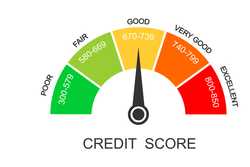How to Deal With Debt Collectors

Our evaluations and opinions are not influenced by our advertising relationships, but we may earn a commission from our partners’ links. This content is created by TIME Stamped, under TIME’s direction and produced in accordance with TIME’s editorial guidelines and overseen by TIME’s editorial staff. Learn more about it.
When a debt goes unpaid, your creditor might assign or sell your account to a collection agency. It's a debt collector's job to try to get you to pay and they can be persistent in their efforts. Being bombarded by collection calls or receiving collection letters in the mail can be stressful. If you find yourself in this situation it's important to know what rights you have when dealing with a debt collector.
Debt collectors can get your information in a variety of ways. How they go about it can depend on how they acquired your debt account. Again, creditors can assign past-due accounts to collection agencies or sell them outright. When that happens, the creditor will share your debt and contact details.
Some of the other ways debt collectors gather information include:
Debt collectors can legally access any information that's part of the public record to find you. Once they have your phone number or address, collection efforts can begin.
Being contacted by a debt collector isn't a reason to panic. Knowing what to do when you receive a collection call or letter can make the process less stressful.
Debt collection scams abound. If you get a collection call or letter, first make sure you're dealing with a legitimate company. A debt collector has to provide you with information about the debt they're trying to collect, including:
Validation letters may be sent by regular mail or email. If a debt collector doesn't supply you with this information within five days of initially contacting you, that's a sign that they may not be a legitimate company.
If it's your first time answering a debt collection call you might not know what to expect. It's not unheard of for debt collectors to use aggressive tactics to try and get you to make a payment or agree to pay over the phone.
The best thing you can do is stay calm and remember that you have rights. Don't make any promises or guarantees to pay anything until you've had a chance to validate the debt and verify that it's yours.
If a debt collector turns up the heat and threatens you with a lawsuit or says they'll send the sheriff to your house, politely tell them you'll have to call them back. If they become abusive you can ask them to contact you by written mail only going forward and hang up the phone.
If a debt collector provides you with a validation letter, check it against your records. Here are some good questions to ask.
Debt collectors can and do make mistakes. If you have a common name, for example, it's possible that a debt collector could reach out to you about a debt they think you owe that belongs to someone else.
Doublechecking their information against yours can help you spot errors and give you grounds to dispute the debt. When you dispute a debt, the debt collector can't contact you to collect until they verify that the account information is accurate.
If you've validated the debt and confirmed that the debt collector is legit, the next step is deciding how to respond. Legally, you can:
If you plan to pay the debt, you could:
Regardless of how you choose to move forward, it's a good idea to keep a paper trail of your communications with a debt collector. You can limit contact to written mail or email only, which can give you something to refer back to if a debt collector challenges something you've said later.
Several laws protect consumers when dealing with debt collector laws. The most important include:
Under these laws, consumers have the right to ask for written verification of a debt. They can also dispute debts that they believe do not belong to them.
You have the right to specify how a debt collector can contact you or ask them to stop contacting you altogether. This does not, however, relieve you of any responsibility to pay the debt.
If you believe any of your rights have been violated you can file a complaint with the CFPB. You could even go as far as suing a debt collector if you believe they've used unfair, misleading, or deceptive practices to try to coerce, harass, or trick you into paying a debt or agreeing to pay.
If you're contacted by a debt collector, use caution. There are certain mistakes to avoid as they could cost you some of your rights and protections.
A legitimate debt collector will do their research to ensure that a debt belongs to you before contacting you. If a debt collector asks for your Social Security number, date of birth, bank account number, or other personal details don't hand it over without first:
Scammers may pose as debt collectors to try and get you to hand over your information so they can use it to commit fraud.
The CFPB's Debt Collection Rule requires debt collectors to validate any debt they try to collect. Until you have this information in hand, don't acknowledge the debt or make any promises to pay.
Don't make any good faith payments either, as that can restart the clock on the statute of limitations. The statute of limitations on debt specifies how long a creditor or debt collector has to sue you for an unpaid account.
Each state has laws regarding how long a creditor has to sue. Making a payment or promising to pay resets the clock and gives a creditor more time to collect.
Debt collection has its bad apples; some people will threaten you, use abusive language, or try to bully you into paying.
You don't have to accept that kind of behavior and you can put a stop to it by asking the debt collector to only contact you by mail or not contact you at all. Cutting off contact doesn't make the debt go away but it does give you some relief from abusive tactics.
The CFPB collects information on consumer complaints against debt collection agencies. According to the CFPB database, some of the most common complaints involve:
If you'd like to read specific details about these complaints, the CFPB's database is open to public view. You can also search for complaints lodged against a specific debt collection agency.
Debt collection scams can target unsuspecting victims; it's to your advantage to be aware of what one might look like. Here are some of the biggest red flags that could indicate a debt collection scam:
If you experience any of these situations you have the right to ask them to contact you again later. That can allow you time to verify that the debt collector is who they say they are. If you find that they're not legitimate, you can report them to the CFPB.
Debt collectors have the right to contact you if you owe a debt, but there are rules for what they can do. If you get a collection call or letter in the mail, don't panic. Review your debt collection rights, check your records, and be prepared to deal with a debt collector calmly and confidently.
When dealing with a debt collector the goal shouldn't be to outsmart them. Instead, you should be focused on preserving your rights. Knowing what a debt collector can and can't say, when they're allowed to contact you, what information they're required to provide, and what rights you have is the best way to handle the situation.
It's unwise to share sensitive financial or personal information with a debt collector without first verifying that they're legitimate. Making promises to pay or acknowledging the debt in any way can also be problematic as it can restart the statute of limitation on debt. That would allow your creditors more time to take collection actions against you.
If you have debts you don't want to pay, you can ask debt collectors to stop contacting you. That won't erase your obligation to the debt, however, and a debt collector could still sue you. Once the statute of limitations on debt expires you can't be sued—but the debt doesn't just disappear. According to the Consumer Financial Protection Bureau, you could still lose a lawsuit if you don’t appear in court and prove that the statute of limitations has expired.
When dealing with a debt collector, respond calmly and ask for validation of the debt. If a debt collector threatens you or engages in abusive tactics you can ask that they no longer contact you or only contact you in writing. Communicating with a debt collector via letters or emails can help you document what's said and the dates the communication took place.
The information presented here is created by TIME Stamped and overseen by TIME editorial staff. To learn more, see our About Us page.



